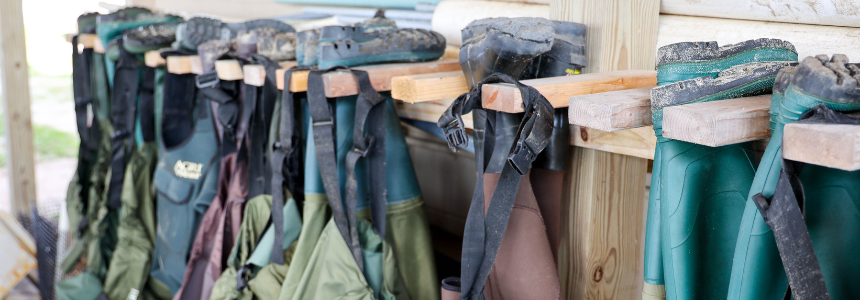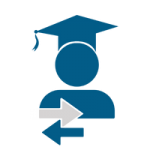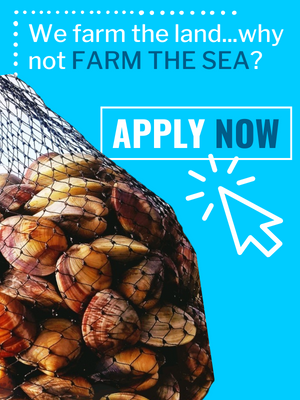
AQUACULTURE TECHNOLOGY
It’s never been easier to source sustainable seafood.
Aquaculture is defined simply as the farming and husbandry of aquatic organisms. This can be growing seafood or ornamental specimens for commercial sale, environmental enhancement, research, or education. The curriculum covers all phases of Aquaculture including hatchery, growout, processing, and marketing. Students learn practical skills that prepare them for future employment in a variety of industries or for continuation at a four-year institution. The program’s mission is to provide education, training, and workforce development for a rapidly expanding aquaculture industry in need of trained employees.
Graduates of the program find employment opportunities at commercial finfish and shellfish farms and hatcheries, public aquariums, marine science labs, and fishery management agencies. Graduates may also create or manage businesses in fish, shellfish, or aquatic plant production, marketing and distribution, aquarium or pond management services.
Degree & Pathway Completion Plans
View what classes you need and when you can take them to complete a degree, diploma, or certificate in Aquaculture Technology.

Where Can I Transfer?
Looking to transfer to a university after you complete your degree at Carteret CC? Good news! Carteret CC has university transfer agreements for students who graduate with an Associate of Applied Science degree in Aquaculture Technology to:
PROGRAM CONTACT
David Cerino
Chair of Aquaculture Technology
Phone: (252) 222-6114
Email: cerinod@carteret.edu
PROGRAM LEARNING OUTCOMES
P1: Nitrification Cycle
Nitrification and recirculation aquaculture systems: Students will demonstrate knowledge of “nitrification cycle” by performing analysis of nitrification cycle for a recirculation system and present results graphically.
P2: Troubleshooting
Practical troubleshooting and problem solving: Students will demonstrate ability to convert actual aquaculture problems to a series of mathematical calculations and compared with actual values.
P3: Water Quality Analysis
Proficiency in Water Quality Analysis: Students will demonstrate ability to test and analyze water samples. Water quality parameters must be tested using a variety of methods and equipment. Potential uses for and evaluation of the water will be addressed.



